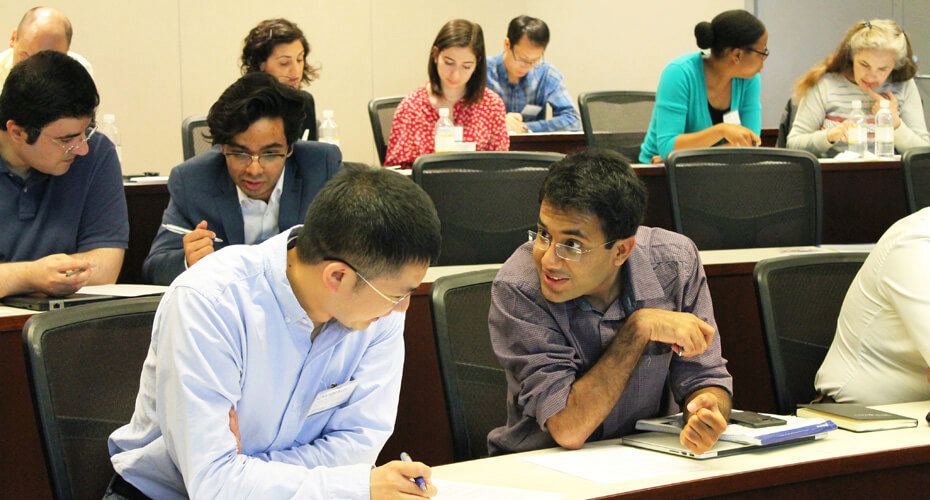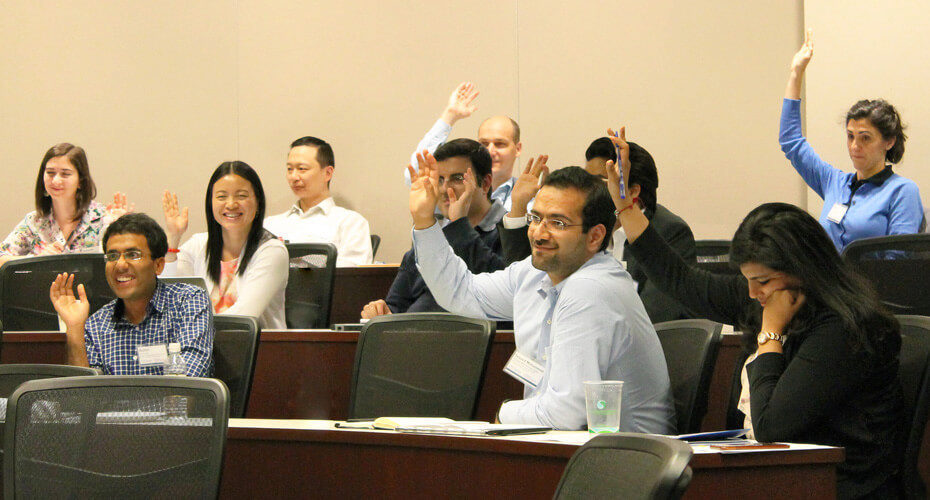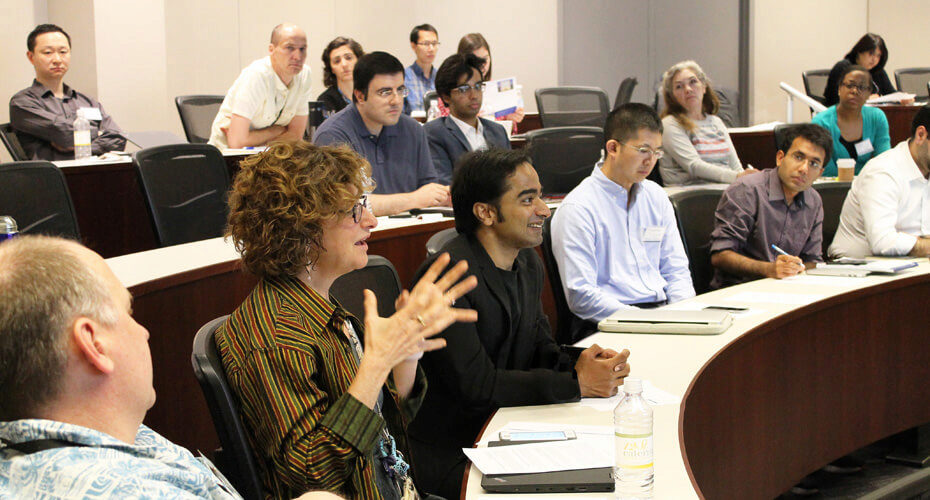
Recognizing an opportunity, tapping resources, fundraising, making a pitch, forming strategic partnerships, protecting intellectual property… Launching a venture requires mastering all these skills and more, and failure at any of one stage can doom an idea before it gets off the ground. While faculty, post-docs, and clinicians across the Penn community are working on concepts they hope will one day benefit society, these researchers often need to add a few tools to their toolbox in order to realize their visions.
That’s why for the third year in a row, the Mack Institute hosted the Penn Wharton Commercialization Workshop to help researchers learn to bring their ideas to life. Co-sponsored by the office of the Vice Provost for Research, the interdisciplinary three-day workshop offered case studies, interactive exercises, and lectures from faculty experts at Wharton, Penn Law, Penn Design, and the Perelman School of Medicine (PSOM).

This year’s iteration drew the largest and most diverse crowd yet, with 40 participants from ten different schools and organizations at Penn. Many attendees are currently working on new medical devices or treatments, while others are looking for innovative ways to improve healthcare system processes. Outside of the medical field, a few participants mentioned ongoing work in energy, online education, nanotechnology, and more.
“My goal is to deliver research that I do in the lab for the benefit of patients,” said Anže Smole, who’s working on a genetically integrated system to enhance CAR T-cell activity. “I learned how to do that and what to think about during this process.” Brittany Taylor, another participant from PSOM, commented, “I have always been interested in the business side of my research, but now I’m thinking about how to structure my aims and future proposals based on the end user and commercialization potential.”

Dr. Helge Hartung, one of the participants, is working on a gene therapy delivery device but also focusing on building the innovation ecosystem at the Children’s Hospital of Philadelphia (CHOP). He cited the overviews of legal concepts, entrepreneurship resources, and disruptive innovation as especially helpful in giving him a more informed approach to promoting innovation at the hospital. Even more broadly, the workshop gave him “new ideas to help CHOP navigate disruption,” he said.
Dr. Helge’s comments get at the twofold goal of the workshop: to better equip researchers to launch and grow a commercial venture based on their research, and to enhance the broader innovation ecosystem at Penn. As another cohort completes the program, we look forward to seeing where their ideas take them.
If you are interested in participating in a future workshop, please contact us directly.



